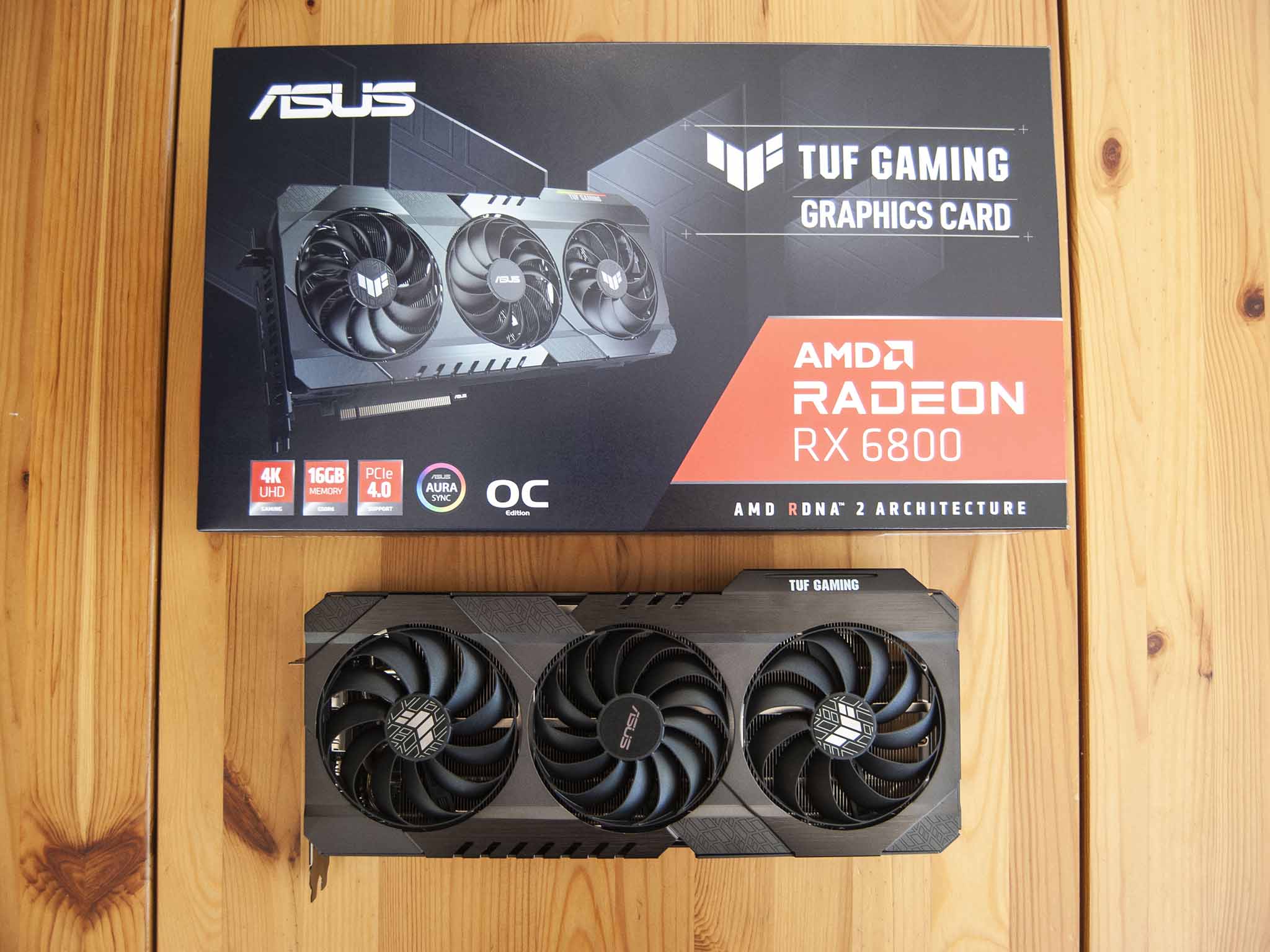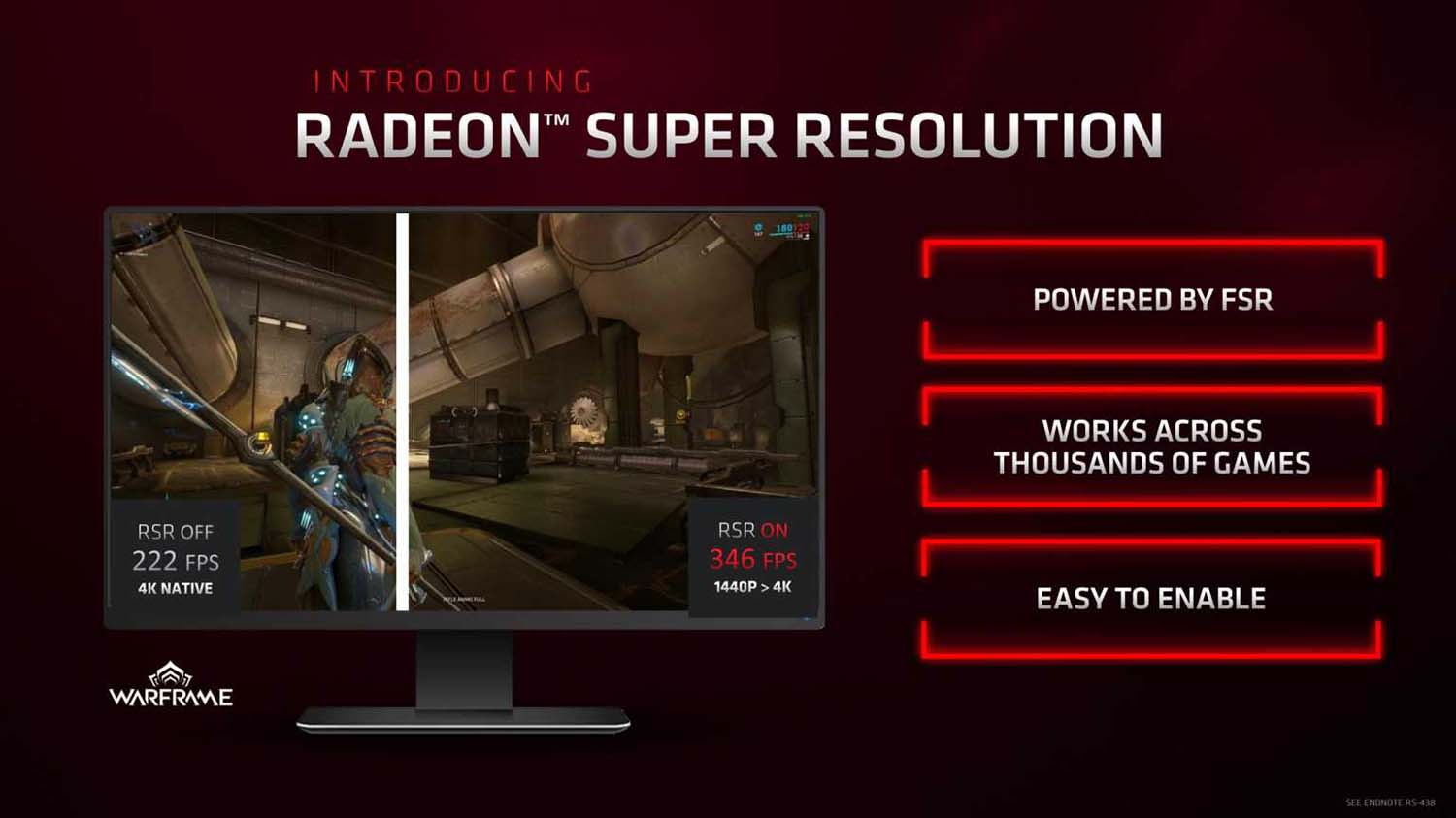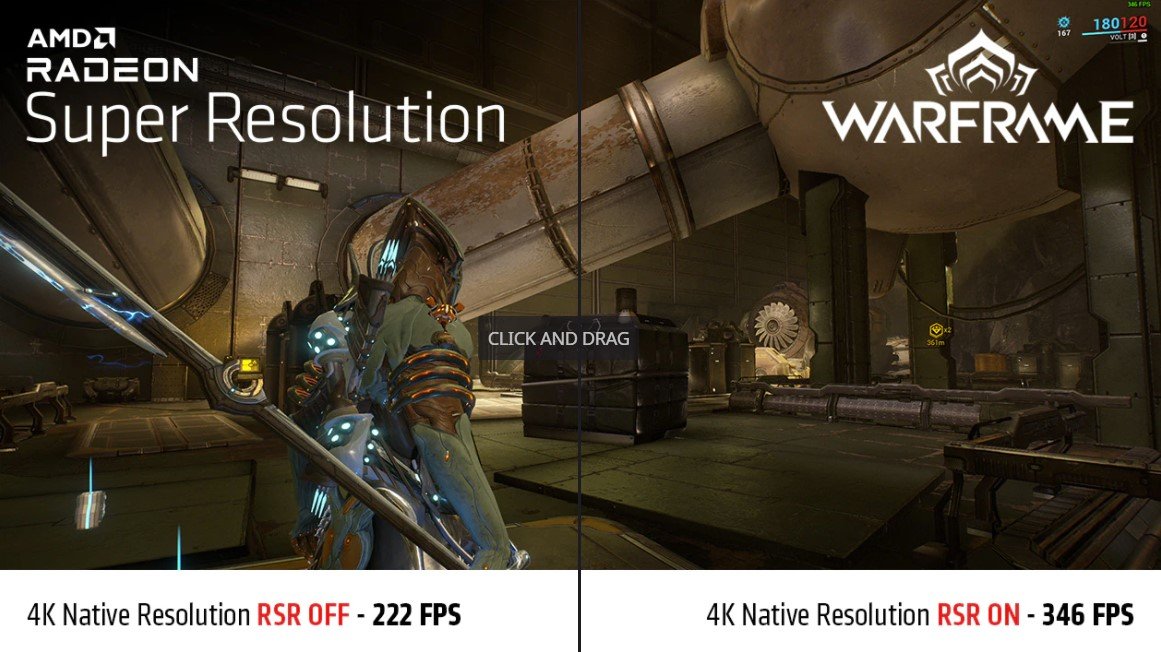
All the latest news, reviews, and guides for Windows and Xbox diehards.
You are now subscribed
Your newsletter sign-up was successful

AMD had a busy CES 2022, announcing new desktop and mobile graphics cards (GPUs), new mobile Ryzen and Ryzen Pro 6000 processors (CPUs), and new features for its existing hardware. One major announcement that most PC gamers can appreciate is AMD's new Radeon Super Resolution. It sounds a whole lot like AMD's FidelityFX Super Resolution, which was released mid-2021. Let's examine how these two technologies compare and which one you might want to use to make your games look better.
What is AMD Radeon Super Resolution?
AMD Radeon Super Resolution (RSR) is a spatial upscaling technique that leverages AI to perform supersampling on games. It's built using the same algorithm as AMD's FidelityFX Super Resolution (FSR), and will cover in spots where FSR is not available. RSR is a driver-based feature that is delivered via AMD's Adrenalin software; FSR is baked right into specific games.
This means that RSR should work in any games with fullscreen mode. It doesn't require developers to implement it into their games like FSR, opening it up to innumerable titles. However, while FSR is available across modern NVIDIA and AMD GPU lineups, RSR is only compatible with AMD's RDNA cards (including Radeon RX 5000 and RX 6000 series GPUs).
AMD Radeon Super Resolution is a driver-based image upscaling technology compatible with innumerable games.
To enable RSR, all you'll need to do is flip a switch in the Adrenalin software. Next time you launch a game, you'll be able to lower the in-game resolution and let RSR work its magic. RSR will upscale the set in-game resolution to whatever is native (or close) on your system. Your GPU should take less punishment, allowing it to push higher frame rates. The lower the in-game resolution you choose, the better performance should be. But there will likely need to be some balancing on your end depending on your system, as lowering the in-game resolution too far in the name of higher frames will degrade the visual fidelity too much.
AMD RSR is likely in part an answer to NVIDIA making its Image Upscaling technology open-source in late 2021, which in turn was a rebuttal to AMD launching FSR. NVIDIA Image Upscaling — now available on GitHub — is highly effective, though it still needs developers to implement it into their titles.
Is AMD RSR better than AMD FSR?
Radeon Super Resolution isn't here yet — it's currently expected Q1 2022 with the next major Adrenalin software update — so we haven't yet been able to do any in-depth testing. We have, however, tested AMD's FidelityFX Super Resolution using an AMD Radeon RX 6800. The results were highly positive, with FSR making a significant difference in supported games. And that's the rub: FSR support is growing, but the list is still only close to 50 games.
RSR should be available in countless games thanks to the driver implementation, though whether it will live up to FSR's capabilities (being baked right into individual games) remains to be seen. Once RSR releases, we will get busy with testing some of the best graphics cards to see how all these competing technologies compare.
All the latest news, reviews, and guides for Windows and Xbox diehards.

Cale Hunt brings to Windows Central more than nine years of experience writing about laptops, PCs, accessories, games, and beyond. If it runs Windows or in some way complements the hardware, there’s a good chance he knows about it, has written about it, or is already busy testing it.

